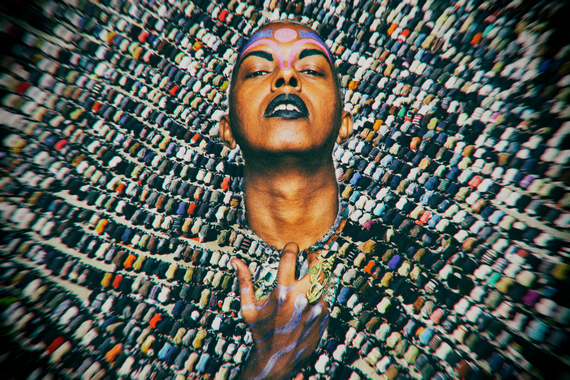Diriye Osman (photo by Darren Bonello)
There's a brilliant quote from Kurt Vonnegut's A Man without a Country that always makes me feel hopeful about the future. "Practicing an art," he said, "no matter how well or badly, is a way to make your soul grow, for heaven's sake. Sing in the shower. Dance to the radio. Tell stories. Write a poem to a friend, even a lousy poem. Do it as well as you possibly can. You will get an enormous reward. You will have created something."
There's a renegade thrill to Vonnegut's wisdom. Going into the arts as a career can render you into fiscal dreck, but the act of producing art, particularly writing, will endow your interiority with a sense of plenitude, of satisfaction that is hard to replicate.
I started writing my short story collection, Fairytales For Lost Children, as a way to humanize myself. I had been told over the years by my family and community that my experiences as a gay Somali were invalid, insidious even, and I had digested this malevolent narrative like manna. I became a walking cavity filled with self-loathing. Fairytales For Lost Children, which focuses primarily on the lives of LGBT Somalis, is a corrective to that poisonous conversation that is still happening across the world with regards to the queer experience. The endpoint of that conversation is a question that always rebounds back on the queer individual whose personhood is under investigation. "Does your life matter?" To which the only reasonable response is a resounding yes.
Toni Morrison said it best: "If there's a book that you want to read, but it hasn't been written yet, then you must write it." This is exactly what I did. No-one was writing the stories that I wanted to read so I went and created these stories myself. The result is a collection of short fiction that takes an intimate look into the lives of Somali children, teenagers and adults who are either gay, lesbian or transgender, and how their futures are shaped by their faith, families and pursuit of personal freedom.
By writing this book, I was engaging in an act of self-invention. I had always been timid as a child but when I sat down to write I gathered a sense of strength, courage and clarity that I didn't know I was capable of. I'm still testing my creative parameters as a writer but the goalposts have shifted since I published Fairytales For Lost Children. I'm now no longer using the act of writing as a lifeboat to anchor my dreams. I now write simply because I love telling stories. I love playing with language. I get a buzz from the beauty of discovering new ways to toy with syntax. This is writing as pleasure, as joyful expression, but I'm aware that I began this process as a way to externalize my greatest fears, hopes and ambitions. I began writing in order to eke out a defined outline of who I was and where I was coming from.
Zadie Smith once said, "The very reason I write is so that I might not sleepwalk through my entire life." This is no longer how I feel about my work, but I understand fully what she means.
____________
Diriye Osman is the Polari Prize-winning author of Fairytales for Lost Children (Team Angelica), a collection of acclaimed short stories about the LGBT Somali experience. You can purchase Fairytales for Lost Children here. You can connect with Diriye Osman via Tumblr. He will be performing at The Huddersfield Literature Festival, The Polari Salon and The London Short Story Festival.

